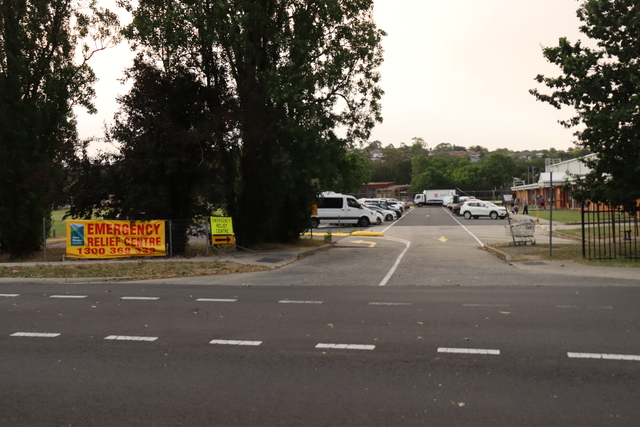VCAT has made a decision in favour of a patient subjected to compulsory electroconvulsive therapy (ECT), with Senior Member G. Nihill not satisfied that the patient RVL (anonymised name) lacked the capacity to give consent to the treatment at the time of the hearing.
The Mental Health Tribunal (MHT), made an order on 23 December 2024 granting an application for 12 treatments of ECT to be performed on RVL up until 11 May 2025. A consultant psychiatrist from Eastern Health, which was also a respondent, attended the hearing.
RVL did not want to have ECT and requested VCAT review the case, and the hearing was also attended by two of her treating psychiatrists Dr N, the consultant psychiatrist and Dr M, a registrar in the inpatient unit at the hospital, as well as Ms D, RVL’s community drug and alcohol counsellor.
Under the Mental Health and Wellbeing Act (MWHA), the MHT can authorise an application to conduct ECT treatment if the patient does not have the capacity to give informed consent and there is no less restrictive way for the patient to be treated. If the patient can understand, remember, weigh up whether to provide consent and communicate that via any means, they have the capacity to give informed consent.
The Supreme Court case of PBU & NJE v Mental Health Tribunal was referenced in the case by Nihill and RVL’s legal representative Mr Ibaceta, where Justice Bell found that ‘the test of incapacity is a functional one’.
“It should not focus on the outcome of the decision, that is, not on what is best for the patient in the minds of others,” the decision reads.
Ibaceta argued that RVL should be presumed to have the capacity to give consent, and did not have to demonstrate her capacity to give or decline consent but had regardless and ‘consistently understood the explanations about the procedure given to her by the treating team.’
“Her reasons for not wanting the ECT were not based in delusional thinking, or to the extent that delusional thoughts may have been involved these did not overwhelm the decision-making process,” the decision reads.
RVL gave evidence at the hearing and said she believed had been put in the hospital for her own safety, as part of ‘some kind of witness protection program’ because of her neighbour’s illegal activity. RVL said the treatment team had diagnosed her as having schizoaffective disorder, but she did not believe this. When asked, RVL said during ECT ‘she was placed under an anaesthetic with a muscle relaxant, and that an electric impulse was applied to her brain’ with the intention of easing her mental illness symptoms.
RVL said ‘she felt tired and muddled, and her muscles ached’ after the four rounds of ECT treatment she received by the time of the hearing on 6 January and that her current concerns about ECT were that she would ‘lose her short-term memory’ and ‘the spark in her personality.’ Previously, she had concerned at home ‘someone had been breaking into her house and drugging her body’
The treating team identified that RVL had a history of depression and anxiety which had been compounded by alcohol use, including a first episode psychosis event in 2021 where RVL was admitted to hospital distressed and frightened. RVl underwent inpatient treatment and was discharged on a community treatment order with medication. She later stopped taking the medication and disengaged with mental health services after the treatment order was later revoked.
In November 2024, RVL’s psychologist noted severe symptoms of illness, with RVL having smoked ice with a housemate and became fearful the former housemate had been tracking her and hacking into her technology, with her fears worsening to the point that RVL attempted to travel overseas due to extreme fears for her safety, despite having no ticket or passport.
Following RVL’s ECT on 2 January, Dr N said RVL’s delusional thoughts were less intrusive, she was following management plans, she was sleeping better and was less anxious.
“This was an improvement from the earlier period before the ECT treatments, when RVL was highly agitated, unable to sleep, distressed and afraid,” the decision reads.
“Dr N said that she regularly conducted assessments as to RVL’s capacity to consent to ECT and had done so as recently as 2 January 2025,”
“She remained certain that while RVL was able to understand the information about ECT that was given to her, and remember it, she was unable to use or weigh that information because her delusions interfered to a significant extent with her capacity to make an informed decision.”
Dr N noted after ECT treatment for RVL on 2 January that RVL ‘feels more relaxed and less anxious’ as well as ‘safe’ in the ward and ‘had good night sleeps for the last week.’ According to Dr N, RVL ‘still believed that there is a lab at the back of her house, people were intruding her house at 4am to drug her and these people can come after her post discharge if they have not been arrested by police’.
RVL declined to accept the benefits of ECT for her mental illness and the treatment team believed there was no less restrictive alternative and that pharmacological treatment had failed with only limited improvement ‘in RVL’s paranoia, anxiety and auditory hallucinations’ on different, trialled antipsychotic medications.
Nihill had two criterion for the decision: ‘Did RVL lack decision making capacity with respect to giving or declining to give consent to ECT?’ and ‘Is there a less restrictive way for RVL to be treated?’
In the decision, Nihill set about clarifying the application was not about if RVl had a mental illness and needed treatment, not about if ECT could benefit RVL and not about if the doctors, nurses and others on RVL’s treating team were ‘drawing on their considerable expertise and experience, and working with careful attention and compassion’ to treat RVL. If it was, based on the evidence Nihill said to all of the above their ‘answer would likely have been yes.’
“I could only make an order authorising the ECT if I was satisfied to the expected standard, taking into account the impact on RVL’s human rights of imposition of the proposed treatment without consent, and applying the law set out in detail in the MHWA and the case of PBU & NJE, that RVL did not have capacity to give informed consent to ECT and that there was no less restrictive way for her to be treated,” the decision reads.
“I was not satisfied about at least one of these two criteria, and so could not make an order authorising the ECT.”
















